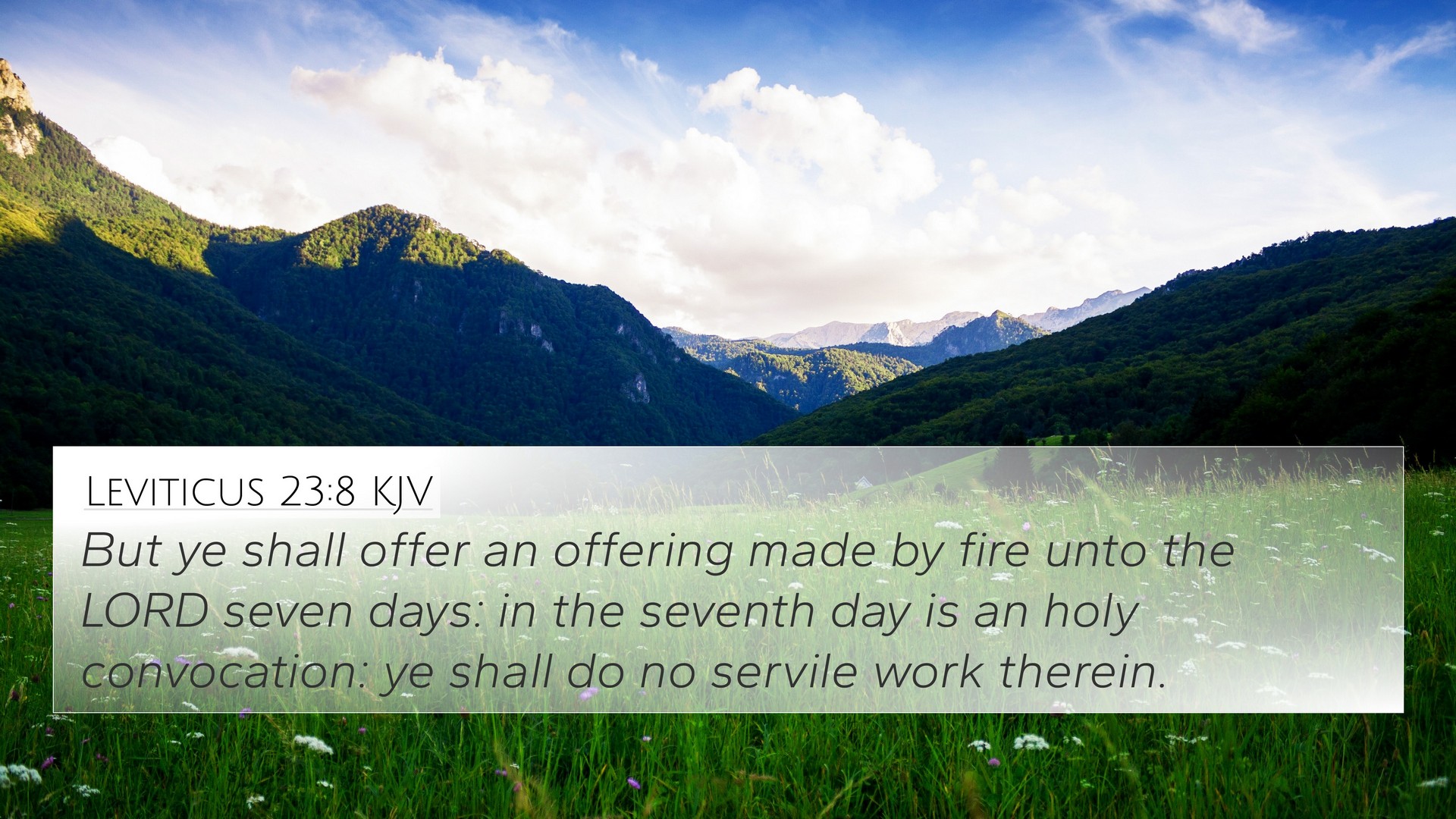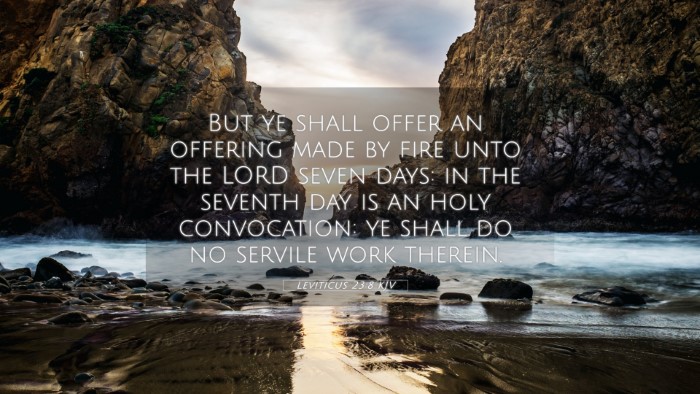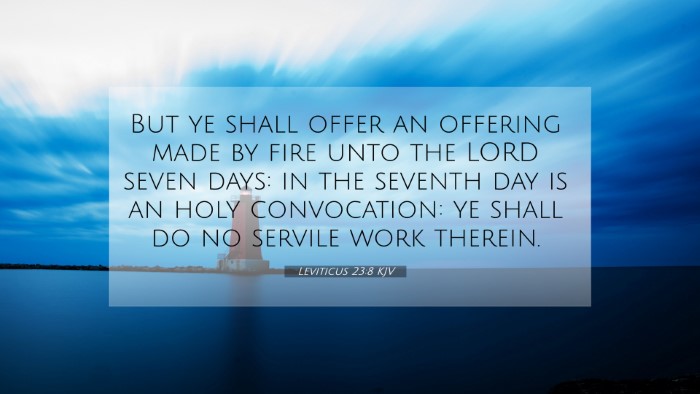Understanding Leviticus 23:8
Leviticus 23:8 states, "But you shall offer an offering made by fire to the LORD for seven days. The seventh day shall be a holy convocation. You shall do no customary work on it." This verse is part of God’s instructions to the Israelites regarding the Feast of Unleavened Bread, a significant time of remembrance and celebration. The emphasis on holy assemblies and offerings reflects the profound relationship between worship and community within Israel's covenant with God.
Summary of Insights
-
Holiness and Separation: This verse underscores the importance of setting apart time dedicated to the Lord. The directive for a holy convocation signifies a physical and spiritual separation from ordinary life to engage in sacred activities.
-
Offerings to the Lord: The requirement for offerings made by fire highlights the communal responsibility of presenting gifts to God. This culture of giving fosters a connection between the people and their deity, symbolizing gratitude and devotion.
-
The Role of Community: The gathering on the seventh day implies the centrality of community worship in Hebrew society. These communal events fortified national identity among the Israelites while reinforcing their shared faith and values.
-
Connections with Other Scriptures: The practice outlined in Leviticus resonates with numerous other biblical passages, deepening our understanding of worship, sacrifice, and community across the Testaments.
Cross-References for Leviticus 23:8
The following Bible verses provide deeper insight into the themes found in Leviticus 23:8:
- Exodus 12:17: Discusses the significance of keeping the Feast of Unleavened Bread and its symbolic meanings.
- Numbers 28:17-25: Details offerings to be made during religious feasts, reinforcing the act of giving during holy occasions.
- Hebrews 10:25: Encourages believers not to forsake assembling together as part of communal worship, echoing the importance of fellowship.
- 1 Corinthians 5:7-8: Connects the Old Testament feast with New Testament teaching about purity and truth.
- Matthew 26:17-19: Provides context on Jesus's observance of Passover, echoing the traditions tied to the Feast of Unleavened Bread.
- Acts 2:1-4: Highlights the gathering of believers during Pentecost, linking back to the importance of communal worship in the Jewish tradition.
- Colossians 2:16-17: Mentions how these feasts were a shadow of things to come, showing the continuity of themes between the Testaments.
Tools for Bible Cross-Referencing
Engaging with Bible verse cross-references is vital for deeper scriptural understanding. Various resources can enhance one's study, including:
- Bible Concordance: A vital tool for finding related verses based on keywords or themes.
- Bible Cross-reference Guide: A systematic approach to connect verses across the Bible.
- Cross-reference Bible Study: Methodologies that help individuals explore the interconnections of scripture.
- Bible Reference Resources: Comprehensive materials that assist in exploring the consistency of biblical themes.
Inter-Biblical Dialogue
The verse invites readers to explore the inter-biblical dialogue between the Old and New Testaments. The themes of sacrifice and communal worship span throughout the scriptures, showcasing a comprehensive picture of faith and practice. Connecting Leviticus 23:8 to the teachings of Jesus and the apostles emphasizes the continuity and fulfillment of God's plan for humanity.
Conclusion
In studying Leviticus 23:8 within its broader scriptural context, one gains insight into the vital elements of worship, community, and the importance of dedicating time to God. The tradition of gatherings and offerings serves not only as historical practices but also as foundational lessons for contemporary believers about the essence of faith practiced in community. By engaging with cross-referenced verses and utilizing biblical study tools, individuals can deepen their understanding of this and related scriptures.


